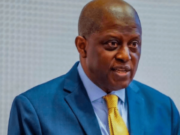Tinubu’s Government Borrows $6.45 Billion from World Bank in 16 Months
President Bola Ahmed Tinubu’s government has borrowed $6.45 billion from the World Bank within just 16 months. According to a report on the World Bank’s website, this borrowing is part of a broader five-year loan approval for Nigeria, amounting to $24.088 billion for various projects aimed at addressing critical development challenges in the country.
The World Bank’s recent approval of loans reflects Nigeria’s increasing reliance on external financial support to fund key sectors such as health, education, and infrastructure. The borrowing includes a diverse array of projects, ranging from flood control to healthcare improvements.
Recent World Bank Loan Approvals for Nigeria
On September 26, 2024, the World Bank approved a total of $1.57 billion in financing to strengthen human capital development in Nigeria. This funding is focused on improving health services for women, children, and adolescents, as well as mitigating the effects of climate change on the country.

The new financing package includes:
- $500 million for governance issues related to health and education (HOPE-GOV),
- $570 million for the Primary Healthcare Provision Strengthening Program (HOPE-PHC), and
- $500 million for the Sustainable Power and Irrigation for Nigeria Project (SPIN).
The HOPE-GOV and HOPE-PHC programs are designed to address governance issues constraining the delivery of education and healthcare services, which are essential for improving human capital outcomes in Nigeria.
Focus on Climate Change and Irrigation
The SPIN project will support Nigeria’s efforts to protect citizens from floods and droughts by enhancing dam safety and water resource management. In addition, it aims to provide irrigation services over 40,000 hectares, benefiting up to 950,000 people, including farmers and livestock breeders, by increasing agricultural productivity through better water management.
The SPIN project will also help Nigeria develop a master plan for hydropower and establish a structured public-private partnership for a new hydropower project. This is part of a broader effort to address climate resilience and enhance agricultural productivity in the country.
Breakdown of Nigeria’s Borrowing from the World Bank
Between 2020 and 2024, the World Bank approved 36 loan requests for Nigeria, amounting to $24.088 billion. The loans were granted for various projects, with significant allocations each year:
- In 2020, the World Bank approved 15 loans worth $6.36 billion for projects such as rural access and agricultural marketing.
- In 2021, six loan approvals amounted to $3.2 billion for projects that included digital identification and COVID-19 response.
- In 2022, Nigeria secured $1.26 billion for projects like livestock productivity and business environment reforms.
- In 2023, $2.7 billion was extended for projects such as the Nigeria-AF Power Sector Recovery Performance-Based Operation and the Nigeria for Women Program Scale-up.
In 2024, the World Bank has so far approved $3.82 billion for five projects, including a grant of $70 million.
Implications of Nigeria’s Borrowing
The Nigerian government’s borrowing from the World Bank highlights its heavy reliance on external loans to fund critical projects across sectors. While the loans provide essential support for addressing issues like climate change, health, and education, they also raise concerns about Nigeria’s increasing debt burden.
The World Bank loans aim to improve the country’s infrastructure and social services, but careful management is necessary to ensure that the funds are used effectively and do not exacerbate the country’s debt challenges.
Social Media Reactions:
- @FinanceWatchNG: “Tinubu’s govt borrows $6.45bn from World Bank in 16 months. Where’s this money going?”
- @EconPulseAfrica: “Another $6.45 billion in loans for Nigeria. How sustainable is this level of borrowing?”
- @NaijaEconomics: “World Bank loans keep rising. $6.45bn borrowed in 16 months. Time to address debt management!”
- @PolicyNG: “With $6.45bn borrowed, Tinubu’s government is relying heavily on external funding. What’s the long-term plan?”
- @PublicSectorWatch: “Borrowing $6.45bn in 16 months is a big step. Can Tinubu’s govt ensure effective use of the funds?”
- @NigerianDebtTracker: “Nigeria has borrowed $6.45bn from the World Bank in 16 months. How will we pay this back?”
- @WorldBankWatch: “World Bank approves $6.45bn in loans to Nigeria since Tinubu took office. What’s next for the economy?”
- @CitizenVoiceNG: “Another round of loans for Nigeria—$6.45bn borrowed in 16 months! How much more debt can we handle?”
- @AfricaDebtMonitor: “The World Bank has extended $6.45bn to Tinubu’s govt in 16 months. Is this sustainable for Nigeria?”
- @NigeriaInFocus: “More loans, more debt! Tinubu’s govt borrows $6.45bn from World Bank in 16 months.”
- @AgricWatchNG: “Tinubu’s govt secures $6.45bn in loans for health, irrigation, and power. What’s the impact on farmers?














![Mr Macaroni Drops Blistering Remark: ‘APC Filled with Most Corrupt People’ as He Slams Tinubu’s Controversial Pardon for Criminals=]] Mr Macaroni](https://naijaeyesblog.com/wp-content/uploads/2025/03/Mr-Macaroni-1-1-180x135.avif)

![Chaos Erupts in Abuja Hotel as BBNaija Star Phyna Sparks Fierce Scene Over Alleged N200,000 Dispute [VIDEO] Phyna](https://naijaeyesblog.com/wp-content/uploads/2024/11/A-Picture-of-Phyna-BBNaija-180x135.jpg)






















